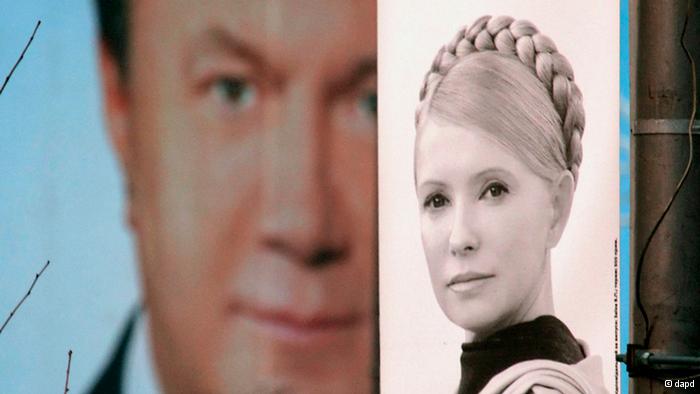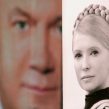
Ruling Party, Opposition Run Neck and Neck in Ukrainian Election Race
Publication: Eurasia Daily Monitor Volume: 9 Issue: 151
By:

A parliamentary election campaign has been officially under way in Ukraine since July 30. The ruling Party of Regions (PRU) will compete for victory with the united opposition formed by several nationalist parties, the largest of which are Fatherland, which is headed by the imprisoned former Prime Minister Yulia Tymoshenko, and the Front for Change (FZ) whose leader is a former parliamentary speaker and former foreign minister Arseny Yatsenyuk. The main intrigue is whether the third most popular party, Punch (“Udar” in Ukrainian and Rusian), which is headed by boxing champion Vitaly Klichko, will side with the opposition in a new parliament as the opposition hopes, or whether it will closely cooperate with the PRU, thus giving President Victor Yanukovych’s party continued control of the legislature. Another question is whether the election will be free and fair.
Parliament will be elected on October 28 under the new rules that were passed last year (see EDM, December 14, 2011). This is a mixed system where half of the 450-seat unicameral legislature will be elected from party lists according to a proportional system, and the other half will be contested in 225 single-seat constituencies according to a first-past-the-post voting method. This should favor the PRU whose candidates are likely to be backed by rich businessmen who tend to support the government and local authorities that are dominated by the PRU. The threshold for parties will be five percent, the highest ever in Ukraine. It was raised from three percent in order to prompt smaller parties to join larger ones and make the legislature more predictable.
Four parties are certain to pass the barrier, and two are almost sure. June opinion polls gave the PRU 16-22 percent support; the united opposition 15-20 percent; Punch more than eight percent; the Communists, who are the PRU’s main allies, around six percent; the populist party Forward, Ukraine (VU) three to four percent and the far-right party Freedom around three percent. If elected to parliament, VU, headed by Natalya Korolevska, a defector from Fatherland, is likely to join forces with the PRU. Tymoshenko’s right-hand man Oleksandr Turchynov has claimed that Korolevska is backed by the administration of President Viktor Yanukovych (Inter TV, March 16). Freedom, on the contrary, is likely to oppose the PRU. In July, Freedom and the united opposition agreed not to field candidates against each other in the single-seat constituencies (Ukrainska Pravda, July 26). Punch did not join them despite months of talks on an opposition coalition.
Punch and VU are the two youngest parties with the fastest growing electorates. The two advertise themselves as the new faces, which is a serious advantage in a country where politicians are deeply mistrusted and about one-third of voters remain undecided less than three months before voting day. “New leaders for a new country” is Forward, Ukraine’s main slogan. Punch trumpets the fact that more than 80 percent of its members have never been people’s deputies (Komsomolskaya Pravda v Ukraine, August 3). Among the six favorites of the race, Punch’s Klichko is the only leader who has never worked in the government or been elected to parliament before.
Although Klichko styles himself as an oppositionist, he has rejected an alliance with either Fatherland or FZ from the start. He has also made it clear that Punch would cooperate with the PRU in parliament on certain issues if necessary (UNIAN, August 1). Klichko says he finances his party mostly himself (ICTV, August 1), but his would-be opposition partners and journalists doubt that Klichko, although being a successful businessman and the world heavyweight boxing champion for years, is so rich. They suspect that Punch may be secretly backed by the ruling elite (UNIAN, August 3; Zerkalo Nedeli, August 4).
The competition will be between faces and sponsors, rather than ideas. Most of the parties, including the two frontrunners, promise low taxes, high wages, corruption fighting and the European vector in foreign policy. The language policy is one of the main dividing lines. The PRU in July pushed through parliament a controversial law that gives Russian the status of a regional language. Russian, which is spoken by most Ukrainians, has thus far had no status at all. The law is a boon to the PRU, whose power base is the eastern and southern Russophone areas. The united opposition, Punch and Freedom have fiercely opposed the law, while the Communists support it, and VU sits on the fence. The law adoption prompted protests in Kyiv and the national-minded Western areas, which have subsided by the end of July.
The election will be a test for democracy as many, both at home and abroad, fear that Yanukovych and the PRU will be tempted to rig the election if unable to win. They failed the previous test, the local election in the fall 2010. This and Tymoshenko’s imprisonment a year ago have almost made Yanukovych an international pariah, and the process of integration into Europe has become all but frozen. European Commission President Jose Manuel Barroso and foreign chief Catherine Ashton made it clear in a recent interview that Kyiv may forget about the Ukraine-European Union association and free trade agreement, which has been initialed but not yet signed, if the October elections are not free and fair (Razumkov.org.ua, July 20).




